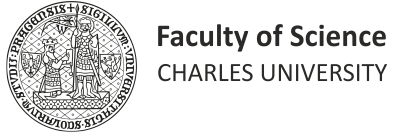Fall Semester
MC270P81 Organic chemistry II (a)
AIM: To expand the students' knowledge of organic chemistry and to enable them to rationalise and predict chemical reactions.
CONTENTS: A more thorough discussion of reaction types known from 1st semester of Organic Chemistry course, e.g. carbonium ion rearrangements, mechanism and stereochemistry of aliphatic nucleophilic substitution, addition and elimination reactions, and
mechanism and product distribution of aromatic electrophilic substitutions, carbonyl condensation. Natural substances.
MC270P27 Organic chemistry III
Clasification of organometalic compounds, their preparation and properties. Basic formalism of organometalic reactions, reaction mechaninisms. Reactions catalyzed or mediated by transition metal complexes: cross-coupling reactions, cycloaddition reactions, conjugated additions, activation of C-H and C-C bonds, functionalization of C-C double and triple bonds.
MC270C28 Organic chemistry Seminar
This course consists of discussions on topics of current interest in organic chemistry, with an active participation by students and faculty members. Students will submit papers and/or give oral presentations about topics from the recent literature in organic chemistry. Discussions of research in progress in the department will be included. Occasional visiting lecturers will participate.
MC270C66 QuoVadis chemistry
Invited lectures series Quo Vadis Chemie.
Spring Semester
MC270P80 Organic chemistry I (a)
The bonding and stereochemistry of carbon. Preparation, reactivity and properties of simple organic compounds characterised by functional groups. Reactive intermediates (radicals, carbocations, carbanions). A few selected and simple reaction mechanisms. Analysis of organic compounds. Introduction to IR, MS, UV and 1H NMR spectroscopy.
MC270P20 Seminar on Advanced Organic Chemistry I
The course deals with advanced parts of organic chemistry. 1. HSBA; 2. Fotochemistry; 3. Cycloaddition reactions; 4. Cyclobutadiene and Dewar benzenes in organic synthesis; 5. Allenes and their reactions; 6. Selected rearrangements in organic synthesis; 7. Radical reactions in organic synthesis; 8. Applied organic synthesis; 9. Bioorthogonal chemistry (organic chemistry in biomolecules); 10. Dynamic combinatorial chemistry; 11. Supramolecular polymers; 12. Molecular machines and devices; 13. Biotransformation of organic molecules
MC270C66 Quo Vadis Chemistry
Invited lectures series Quo Vadis Chemie.


